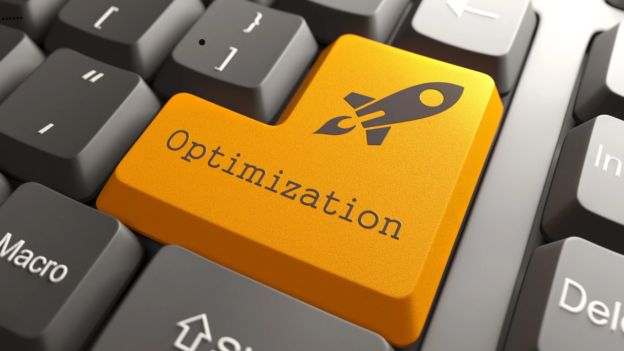In today’s competitive world, companies constantly seek ways to make operations smarter, faster, and more efficient. One technology that’s making this happen is machine learning (ML). By weaving it into Enterprise Resource Planning (ERP) systems, businesses aren’t just automating—they’re evolving. Machine learning brings more than just convenience; it brings intelligence to the processes, helping businesses predict, adapt, and grow.
In this blog, we’ll walk you through how machine learning is transforming ERP solutions and how businesses can stay ahead by working with trusted NetSuite partners and tapping into NetSuite Support Services.
- Smarter Forecasting with Predictive Analytics
What’s New in Forecasting?
Traditional ERP systems do a decent job with data, but they only look backward. Machine learning flips that approach. It analyzes past data and combines it with real-time information, providing forward-looking insights that adapt to changes in the market. This makes forecasts more dynamic and reliable.
How It Helps:
- Sales Projections: Machine learning analyzes buying trends and customer behavior, forecasting future sales more accurately.
- Inventory Balancing: It can predict demand shifts, helping businesses avoid overstocking or running out of products.
- Budget Planning: By understanding multiple financial variables at once, machine learning gives more accurate financial forecasts.
Real-World Example:
Imagine a retailer using NetSuite ERP enhanced with machine learning. Instead of over-relying on outdated seasonal sales trends, the system analyzes current buying patterns, competitor prices, and market sentiment, forecasting demand shifts in real-time. With NetSuite Support Services, this smart system can be tailored to your unique business needs, reducing unnecessary inventory costs and improving customer satisfaction.
- Automating Processes with Intelligence
Moving Beyond Basic Automation
Most ERP systems automate repetitive tasks like data entry or invoice generation. But what if these processes could learn and improve on their own? That’s exactly what machine learning does. It spots inefficiencies, learns from them, and suggests better ways to streamline operations.
Where It’s Useful:
- Procurement: Analyzing supplier performance and automatically selecting the best options.
- Invoice Matching: Spotting errors in invoices faster by automatically cross-referencing them with purchase orders.
- Production Optimization: Learning from production data to adjust workflows, increasing efficiency.
Example in Action:
A manufacturer using NetSuite ERP can use machine learning to optimize their supply chain. When suppliers experience delays, the system can suggest alternatives or reorder schedules to prevent bottlenecks. With NetSuite partners, businesses can customize these automations, saving time and resources.
- Personalized Customer Experiences through CRM Integration
Better Customer Insights, Bigger Impact
Machine learning doesn’t just crunch numbers—it reads people. When integrated into ERP systems with CRM modules, it can understand customer preferences and predict future behavior, making customer interactions more personalized and effective.
Applications:
- Predictive Customer Segmentation: Grouping customers based on buying habits for more targeted marketing.
- Real-Time Pricing Adjustments: Adjusting prices based on market demand and competitor actions.
- Automated Customer Support: Using intelligent chatbots to handle routine inquiries, leaving human agents free for complex tasks.
Real-World Scenario:
Picture an e-commerce business using NetSuite’s CRM integrated with machine learning. The system can recommend personalized products to each customer, boosting conversion rates. NetSuite partners can help fine-tune this integration, ensuring your customers feel valued and understood at every touchpoint.
- Strengthening Risk Management and Compliance
Proactive Security with Machine Learning
In today’s digital-first environment, businesses can’t afford to be reactive. Machine learning offers proactive risk management by constantly scanning for unusual patterns, identifying potential threats, and ensuring regulatory compliance.
Key Benefits:
- Fraud Detection: Spot suspicious transactions and alert the team before they escalate.
- Regulatory Compliance Monitoring: Keep up with changing regulations by continuously analyzing processes for compliance.
- Anomaly Detection: Flagging unusual activities like unauthorized access attempts or sudden spending spikes.
Example in Use:
Financial institutions using NetSuite ERP are already leveraging machine learning for real-time fraud detection. This extra layer of security doesn’t just protect the business but also builds trust with clients. With NetSuite Support Services, companies can ensure these systems stay current and effective, adapting to new threats as they emerge.
- Enhancing HR Processes with AI-Driven Insights
Smarter Human Resource Management
HR is no longer just about managing people—it’s about understanding them. Machine learning can sift through HR data to spot trends, predict turnover, and offer personalized career development paths.
Applications:
- Automated Hiring: Filtering resumes and shortlisting candidates based on specific job requirements.
- Employee Retention Insights: Predicting turnover and suggesting proactive retention strategies.
- Personalized Training Programs: Recommending courses tailored to employee needs and career goals.
Example Scenario:
A large organization using NetSuite HR can leverage machine learning to predict employee turnover risks based on engagement levels and job satisfaction data. By partnering with NetSuite partners, businesses can design proactive strategies, reducing attrition and enhancing employee well-being.
Why NetSuite for Machine Learning Integration?
NetSuite is already a leader in cloud ERP solutions, and its adaptability makes it perfect for machine learning integration. By working with NetSuite partners and using NetSuite Support Services, businesses can:
- Customize Machine Learning Models: Tailor ML solutions to industry-specific needs.
- Seamlessly Integrate ML Features: Ensure smooth adoption into existing ERP workflows.
- Receive Continuous Support: Stay ahead with ongoing updates and expert guidance.
Conclusion
Machine learning is not just enhancing ERP systems—it’s transforming them. By integrating ML, businesses can forecast better, automate smarter, personalize customer experiences, and improve risk management.
If you’re looking to future-proof your ERP system, leveraging the expertise of NetSuite partners and the reliability of NetSuite Support Services is the smartest move. Embrace machine learning today, and position your business for a smarter, more efficient tomorrow.
Bottom of Form








